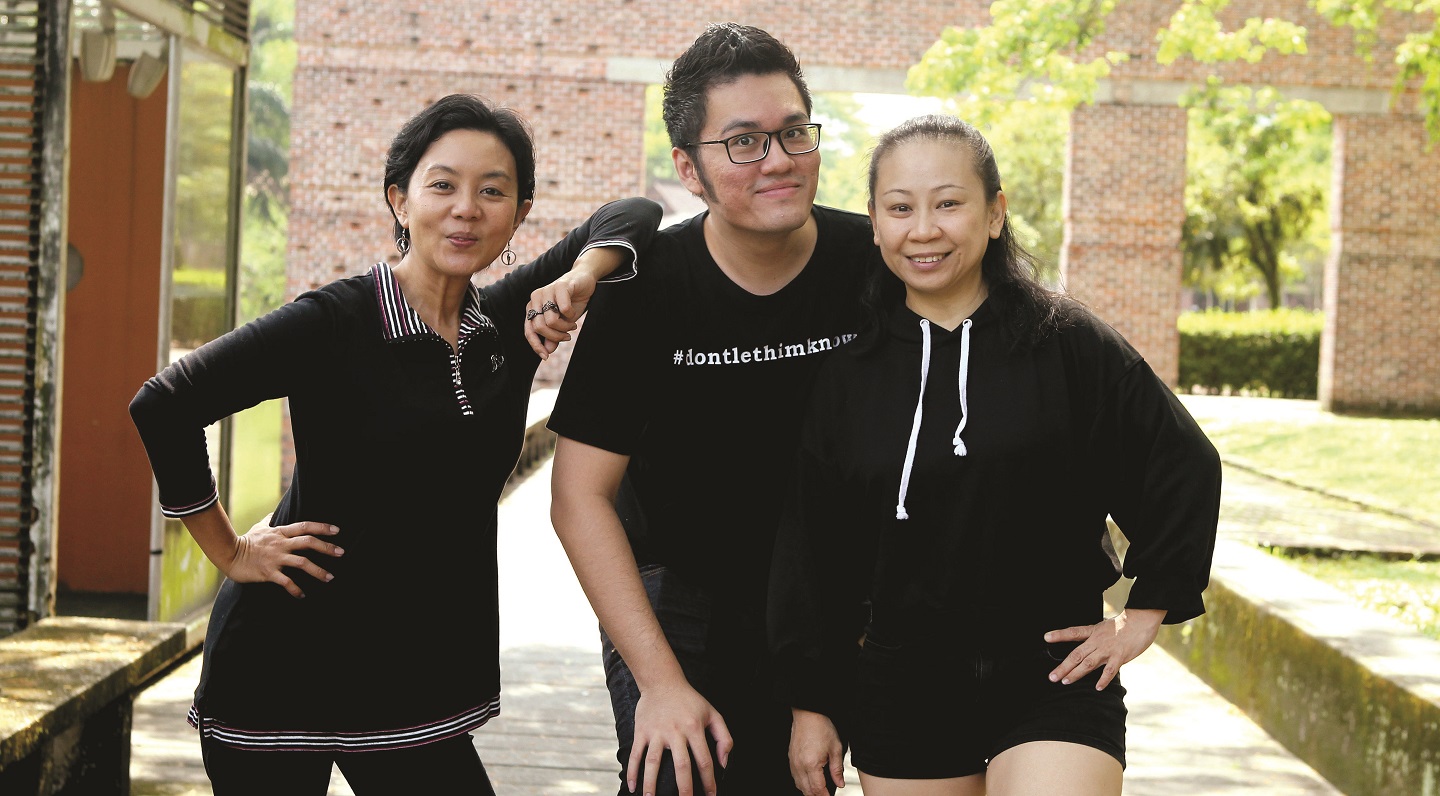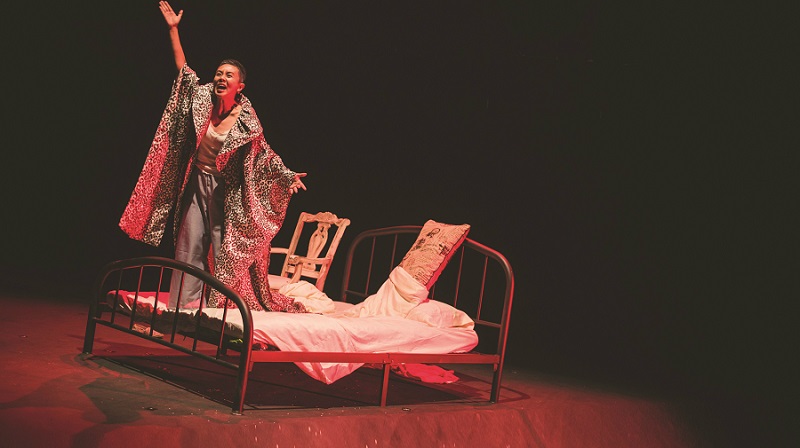
From left: Co-director Marina Tan, producer Easee Gan and co-director Amelia Tan. (Photo: Suhaimi Yusuf/The Edge)
After two successful editions, the Don’t Let… short play series returns with a new theme. Don’t Let Writer Know promises to be a playful, somewhat irreverent, poignant and refreshing tribute to the century-long legacy of modern Chinese theatre in Malaysia. Co-presented by The Actors Studio Seni Teater Rakyat and producer Easee Gan’s MUKA Space Productions, the show will feature seven directors and seven short works.
“It all started in 2016 when we did Don’t Let Shakespeare Know for the 400th anniversary of his death. We wanted to try an alternative, fun way to retell his stories. So we did multiple original plays in one night, each 10 minutes long. It was like a mini festival,” Gan explains the idea behind the series.
The team decided to reimagine fairy tales and children’s stories last year, while this year’s edition is a commemorative one. “The first known Chinese play was performed in Malaysian theatre in 1919. [To celebrate this milestone], we want to focus on the link between performing arts and Chinese literature,” he says.
The directors in the initial production return this year, including multi-talented actress and director Marina Tan, who has a varied body of work, ranging from musical theatre to Shakespeare. She is also well known as a voiceover talent.
In the first series, she performed a self-directed one-woman show based on Margaret of Anjou, a lesser-known character depicted in several Shakespeare plays. Bringing her to the fore through an evocative monologue, Marina creatively shed new light on what was a much-maligned character in the Bard’s portrayal.
In a similar vein, the director has chosen another controversial female figure for this year’s series in the form of Empress Dowager Wu. “Perhaps I instinctively feel an affinity for people whom others talk about. When I thought about it, there was only one woman in Chinese history that has had so much written about her, in a way that the legend surrounding her is larger than life,” explains Marina.
In her work titled Super “Wu”man, she is joined by co-director Amelia Tan, who was the lighting designer in Don’t Let Shakespeare Know and directed a shadow puppet play in last year’s edition.
“I’m really glad she’s ‘available’ to act this time around,” Marina laughs. “We worked together in Ang Tau Mui in 2014 and are now friends, and Amelia is definitely a very experienced peer whom I respect.”
The partnership is an interesting one, especially since Marina cannot speak, read or write Mandarin. She asked fellow thespian Ling Tang to translate her original script. “I’m fortunate that the actresses for Super “Wu”man are conversant in English, though sometimes when they discuss specific lines in Mandarin and then look at me sideways, I just have to trust [them],” she quips, adding, “But the collaborative process was a good opportunity to improvise and devise a more colourful and unique piece of work, with the actors’ own dynamics in it.”
Amelia plays Ying Ying, the best friend of the titular character, Wu Mei (played by Boh Kuan). She says of the plot, “The story is not set in the Tang Dynasty, but we are looking at a woman of today, how she manoeuvres the expectations and perceptions of men and society at large.”
The story of three women — Kimmi Kiew plays a loyal servant of Wu — and their relationship with one another is a timely one, in line with the current discourse on female empowerment and how it is perceived by both men and women.

“The word superwoman has a certain connotation for women — all the expectations of how a woman can and should do it all. It explores that,” says Marina. “Globally there’s also an ongoing movement to relook literature, culture, art and, to an extent, theatre, where portrayals of certain people are being questioned and re-examined. For example, stories written during the colonial times about locals by colonists, they aren’t necessarily true, since the eye of the beholder determines the nature of the observations.
“There may be a point of view that we’ve accepted, but with a renewed context. There’s a fuller or even just a different way of looking at it.”
Amelia chips in, “A show like this offers an opportunity to look beyond just a manipulative woman, maybe into the why or how she came to be, and examines her in another light.”
Gan says the series’ objective is really about nurturing interest while also serving to entertain. “We want regular people to feel comfortable going to the theatre. With these different interpretations, one can see a lot of different viewpoints. I like that I can take a three-hour play and make it into a 10-minute-long story.”
He is referring to one of two works he’s directing in this show - inspired by the historical legend of Da Ji, the infamous consort of King Zhou of the Shang Dynasty. Known as a seductress, she is often portrayed as a malevolent fox spirit in folk tales and novels. Gan’s second work is adapted from local author Li Zi Shu’s award-winning novel, Grandpa’s Papaya Tree. The poignant story tells the tale of a promise between a grandfather and his grandchildren.
The other plays include William Yap’s Pity, based on an excerpt from Malaysian author Chuah Huan Bee’s novel on her mother’s life. Vincent Hau’s Ladies Lavatory — The Three Visits is an intriguing story based on Romance of the Three Kingdoms, though this version is set in a shopping mall’s toilet. In a poetic reflection of our nation’s current state, Mon Lim’s Till We Meet Again draws inspiration from Chinese poet Tao Yuan Ming’s The Peach Blossom Spring, in which perfect utopia is painted. The question of why folk-story heroine Mulan’s gender was not discovered by the general is also imaginatively brought to life in Giant Liang’s piece, Mulan Mulan.
Don’t Let Writer Know (in Mandarin with English surtitles) will be staged from April 5 to 8 at Pentas 2, klpac, Jalan Strachan, KL. Tickets are priced at RM45. Call (03) 4047 9000 to purchase.


